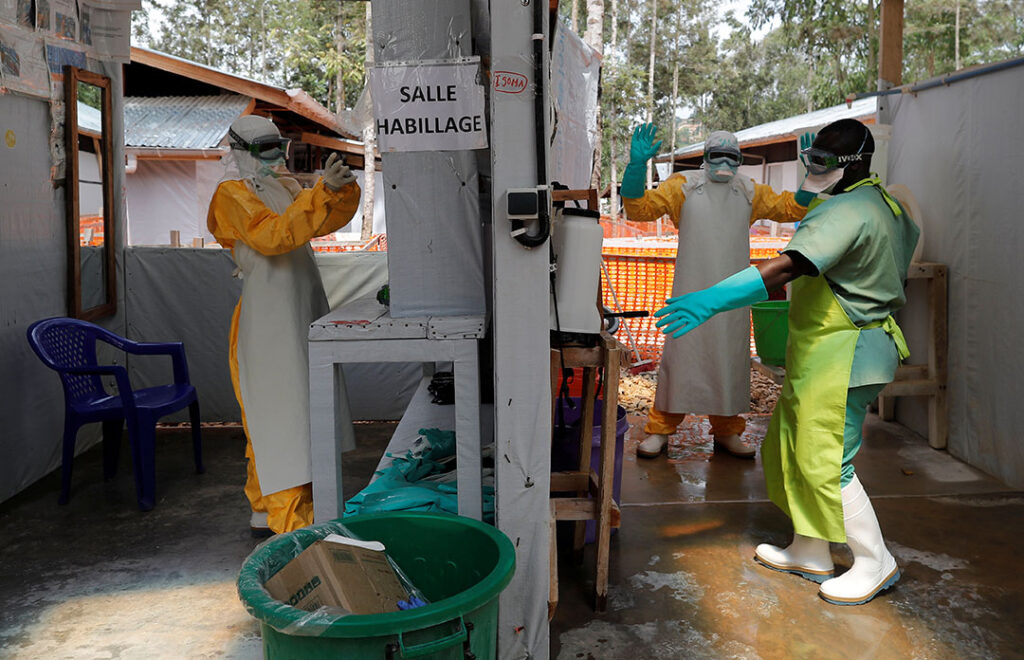ADF STAFF
Nearly two years after it began, the Ebola outbreak that claimed more than 2,200 lives in the Democratic Republic of the Congo’s (DRC’s) northeast was declared officially beaten on June 25.
Health Minister Eteni Longondo pronounced victory over what he described as the “longest, most complex and deadliest” Ebola outbreak in the country’s history. An outbreak can be declared over when no new cases are reported for 42 days, or two 21-day transmission cycles.
The triumph in the northeastern province of North Kivu was tempered by a fresh
Ebola outbreak that appeared June 1 in the country’s northwest. Within two weeks, 17 people died from the virus in Mbandaka in the northwest Equateur province near the borders with the Republic of the Congo and the Central African Republic. It is the 11th Ebola outbreak in the DRC since the disease was identified nearly 45 years ago.
Starting in 2018, the North Kivu outbreak killed two-thirds of the 3,470 people the virus infected, the second deadliest outbreak in the world, according to Nature.
“#Ebola outbreak in #DRC is OVER! WHO congratulates all those involved in this tough and often dangerous work to end the almost 2-year-long outbreak,” the World Health Organization cheered on its Twitter feed, referring to the North Kivu epidemic .
The man leading the fight against Ebola was the man who first encountered it when he was a newly graduated field epidemiologist in 1976: microbiologist Dr. Jean-Jacques Muyembe Tamfum.
Today, Muyembe is general director of the DRC Institut National pour la Recherche Biomedicale. His battle plan this time around involved deploying two experimental vaccines to stop the spread of the virus. More than 320,000 people received one of the vaccines. This was the first time a vaccine had been used to combat Ebola, according to Nature.
The vaccines were successful enough that people were seeking them out, making eradication easier, Muyembe said.
“We are extremely proud to have emerged victorious over an epidemic that has lasted a long time and caused a lot of damage to our population,” Muyembe said.
The twin Ebola outbreaks added to the DRC’s burden as its public health system also tried to rein in a measles epidemic that has killed more than 6,000 people since early 2019 and then the COVID-19 pandemic in early 2020. As of late June, the country had reported more than 6,900 cases of COVID-19, according to the Africa Centres for Disease Control and Prevention.
“Chronic insecurity helped make the [Ebola] epidemic highly complex,” Longondo said at his press conference, according to the United Kingdom’s Daily Mail.
The world’s deadliest outbreak killed more than 11,300 people in West Africa between 2013 and 2016. That outbreak was concentrated in Guinea, Sierra Leone and Liberia.

